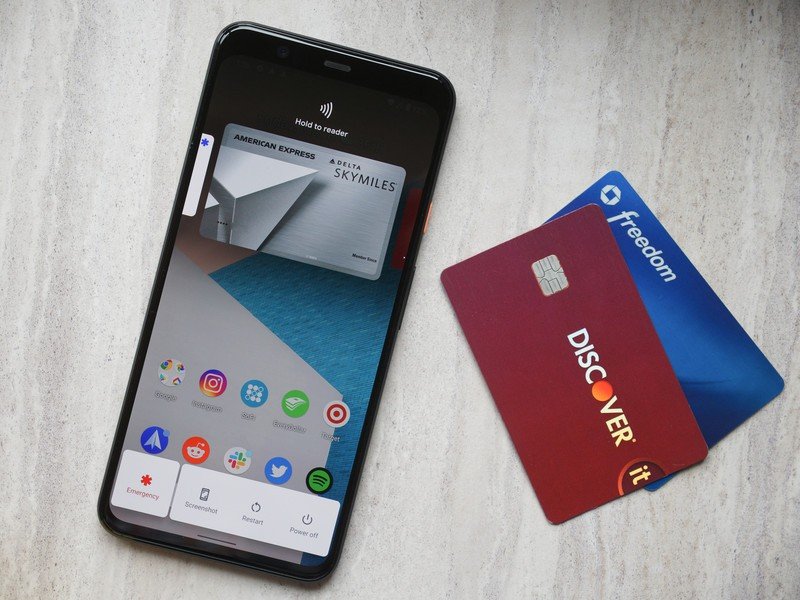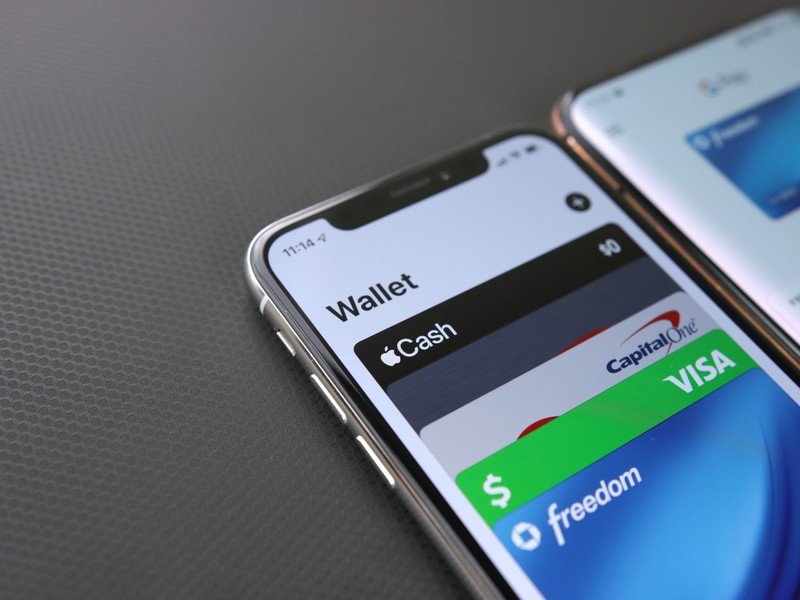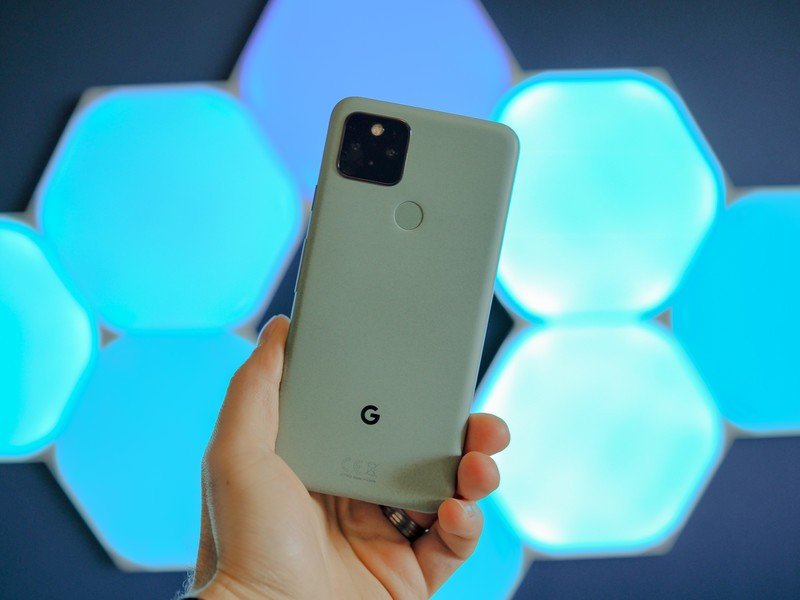Apple is the 'catalyst' that will push Google to bring digital IDs to Android

Google has not made any significant progress in the past two years since announcing it is bringing digital IDs to Android devices, but experts say the tech giant is likely worried about privacy standards and working with several states. They add that the splashy announcement from Apple about its digital IDs "will serve as a catalyst to move Google along."
During its developers' conference in 2019, Google said that it was launching electronic IDs to Android phones. Since then, Google hasn't really spoken about any developments on the project. Google announced at the end of December that year that Qualcomm Snapdragon 865 and 765 chips will be the first o support Android Identity Credential APIs, which will help implement digital IDs.
Android Central reached out to Google to get clarity on when digital IDs would come to Android Devices, but the company declined to comment. It did provide a link to a blog post it wrote about digital IDs that was published in late 2020.
In October 2020, the company said in a blog post that there is an international standard that includes a system called Mobile driving license (mDL) for using mobile apps on the phone as ID cards. Google explains that it has implemented an Identity Credential API for digital IDs in Android 11.
"Android now includes APIs for managing and presenting with identity documents in a more secure and privacy-focused way than was previously possible. These can be used to implement ISO 18013-5 mDLs but the APIs are generic enough to be usable for other kinds of electronic documents, from school ID or bonus program club cards to passports," Google wrote.
Additionally, Google wrote that its security and privacy team was actively participating in ISO committees where standards are written and also work with civil liberties groups to ensure that digital IDs have a "positive impact on our end users."
Google would rather have others create an app for digital IDs

Andrew Cornwall, a senior analyst at Forrester, explained in an email that what Google hasn't done is write an app that lets you store drivers' licenses or government IDs in the Identity Credential Store. The credential store is where an actual user's personal details are located on-device, usually in a secure element separate from the rest of a user's data.
Get the latest news from Android Central, your trusted companion in the world of Android
Additionally, Cornwall explained that some states already have a system for digital IDs, like Louisiana, which has had a digital ID app since 2018, but it doesn't use Android's API or Apple's new iOS 15-based system. Oklahoma also has what it calls mID, which serves as a companion to your physical ID. Cornwall also indicated that IDEMIA, a digital ID company, has also partnered with several U.S. states but most of the states aren't beyond pilot programs yet.
"What this tells me is that Google would like someone else to go through the process of creating an app for secure IDs, while Apple is willing to reach out to at least a few governments and wants to control the IDs themselves," he said. "This fits Apple's narrative that they curate apps: Apple tells us that they'll hold your ID safely rather than having every state and/or country implement potentially insecure or poorly written apps."
Apple announced during WWDC it was implementing digital IDs in its Wallet App and will be working with several states in the U.S., though the company has not released a final list.
Cornwall added that while Google does have a form of digital ID in Google Pay, but it is used for credit cards, bank accounts, transit cards, ticketing, and loyalty cards rather than a driver's license.
Cornwall said that if Apple's digital ID app becomes the "de facto standard" that would certainly encourage vendor lock-in.
Apple has created the sunshine moment yet again for industry leaders to follow, privacy is top of mind

Neil Shah, vice-president of research at Counterpoint Research, said in an interview that Google likely didn't make any headlines on where it's at with digital IDs during its 2021 Google I/O announcement, and likely won't do so in the future until it's strengthened its security and privacy stance.
"There are multiple issues with Google's (digital ID) approach - first Google never conceptualized a universal wallet app which could hold all your identity," he said. "The main reason is possibly Google is unsure or not confident about the level of 'trust' for Google from a consumer end. Google's ad-driven business model places it two steps behind Apple on privacy and trust aspects."
Shah said just like the way Apple's change in ad-tracking privacy pushed Google to think about its model, a similar push could happen here where Apple has created a "foundation for the adoption of a particular trend."
Ben Bajarin, CEO and principal analyst at Creative Strategies in California, agreed with Shah in an interview that this is yet another sunshine moment from Apple that will jump-start what Google has tried to implement.
"I do think it is possible that Apple's move into this space will serve as a catalyst to move Google along and get more states/countries into the conversation to be able to support (digital IDs)," he said.
Bajarin also added that there are a number of reasons Google hasn't further pursued digital IDs as much as Apple has. Like Shah, he said a lot of it could be around security, as well as making sure "all their partners are unified on how it works so this sensitive information is protected and secure."
Global adoption is going to be harder than it seems

Tarun Pathak, a research director also at Counterpoint Research, also said in an interview that privacy will be top of mind for Google right now when it comes to thinking about digital IDs.
"Apple's entry into this space will just make it easier for others," he, said, agreeing with Shah and Bajarin that Google will likely be focusing on ensuring there is the right privacy framework.
"Additionally, the biggest advantage of digital IDs (from Apple), apart from convenience is that they will be much more secure and Google ideally would like to put in efforts to ace and position the security aspect even more transparently and this might take some time," Pathak said.
He explained that personal details like this are even more prone to attacks as they are so valuable.
Pathak also noted that global adoption of digital IDs is going to be a lot harder than simply joining forces with Google or Apple.
"We believe digital IDs will evolve over a while and it will require a very close working of the state authorities and standards will also develop to make it happen across the world," he said. "However, adoption will start from the states to countries to the regions and will take time."
Pathak added that the roll-out will be challenging at first and whoever does it first will leave "a lot of learning for others."
In this circumstance, however, Bajarin noted that it's not that Google is waiting for Apple to take the lead so it can see what the adoption rate is like and fix bugs if needed.
"I think Google would have liked to lead in this area, but I think they have a larger ecosystem of partners to align, as well as perhaps other immediate platform priorities, and that is why it may not have been as high on the list to release," he said.

Shruti Shekar is Android Central's Editor-in-Chief. She was born in India, brought up in Singapore, but now lives in Toronto. She started her journalism career as a political reporter in Ottawa, Canada's capital, and then made her foray into tech journalism at MobileSyrup and most recently at Yahoo Finance Canada. When work isn't on her mind, she loves working out, reading, watching the Raptors, and planning what she's going to eat the next day.
